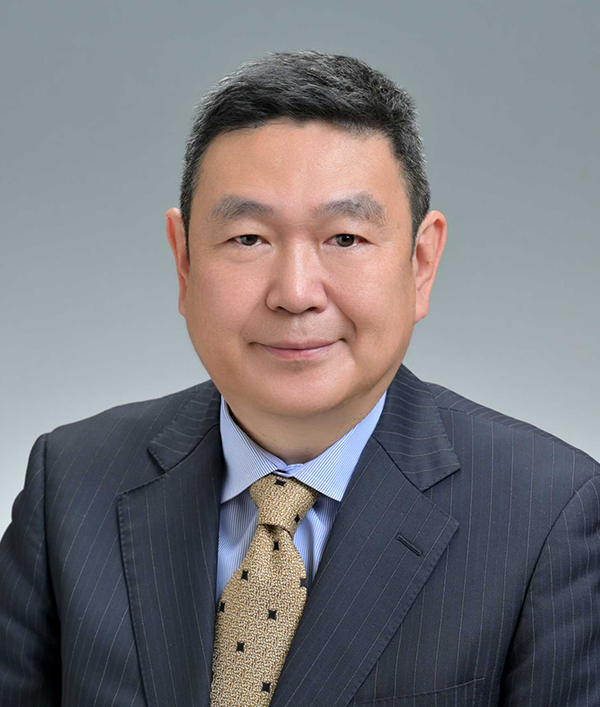


The Leading Cause of Disease-related Deaths in Children - Difficult to Detect Early and Rapidly Progressive
Childhood cancer is a general term used for cancers affecting children. In Japan, approximately 2,500 cases of pediatric cancer are diagnosed annually. Childhood cancer is the most common cause of disease-related deaths in children. Unlike adult cancers, childhood cancers are not related to lifestyle factors. There are few known causes. Two major categories of childhood cancer are blood cancers (such as leukemia and lymphoma) or solid tumors (such as brain tumor, neuroblastoma, and renal tumors). Childhood cancer is difficult to detect early owing to mild or nonspecific symptoms. The disease progresses rapidly, and tends to spread throughout the body.

A Nationwide Research Group for Childhood Cancer Treatment
JCCG (Japan Children’s Cancer Group) was established as an NPO in December 2014 bringing together medical experts from across Japan to research and advance pediatric cancer treatment. JCCG comprises more than 200 facilities, including nearly all university hospitals, pediatric hospitals, and general hospitals in Japan involved in pediatric cancer research and care.



Accurate Diagnosis and Nationwide Collaborative Research
Effective childhood cancer treatment relies on an accurate diagnosis through imaging, genetic, and pathological testing. Nationwide collaborative research is also key. The JCCG promotes collaborations among medical professionals across Japan by sharing information, conducting group studies, and centralizing diagnostic assessments to ensure the best possible childhood cancer treatment for optimal patient outcomes.

 Message
Message
Creating a brighter future for children
through the power of science and passion!
Dear Japan Children’s Cancer Group (JCCG) Members and Supporters,
I am Katsuyoshi Koh of Saitama Children’s Medical Center in Japan. It is my pleasure to be the elected President of the JCCG. I will fulfill my responsibilities as the fourth President of the JCCG, succeeding Dr. Shuki Mizutani, the first President; Dr. Soichi Adachi, the second President; and Atsushi Manabe, the third President. The Vice-Presidents, Dr. Yasuhiro Okamoto and Dr. Tatsuro Tajiri, both have extensive practical experience. Dr. Daisuke Tomizawa, our newly appointed Chair of the Steering Committee of the Hematology/Oncology Section, and Dr. Akihiro Yoneda, Chair of the Steering Committee of the Solid Tumors Section, will also be joining me in serving JCCG. I look forward to working with the team over the next two years.
The JCCG was established in December 2014 as a nonprofit organization. JCCG was originally formed by merging the Japan Pediatric Leukemia and Lymphoma Study Group (JPLSG) and the Joint Organization for Clinical Trials on Pediatric Solid Tumors. It is the only organization in Japan that includes all university hospitals, children's hospitals, and general hospitals specializing in pediatric cancer treatment and research. JCCG brings together all specialists involved in pediatric cancer, including pediatrics, pediatric surgery, neurosurgery, orthopedics, radiology, pathology, biostatistics, and basic research.
The JCCG provides various essential facilities to support clinical research on children with cancer. These include central diagnostic services for pathology, immunology, molecular biology, and diagnostic imaging. The Data Center and the Biobank for patient specimens were also central components of the JCCG. We have experts in data management, biostatistics, and ethics. In addition, JCCG includes all healthcare professionals with expertise in pediatric oncology. Currently, the JCCG has 200 participating facilities, and the number of patients involved in clinical trials over the past 10 years has reached 22,891 for hematologic tumors, such as leukemia, and 10,772 for solid tumors, such as brain tumors. During that same period, we have been involved in 91 clinical trials, 52 for hematologic tumors and 39 for solid tumors. The cumulative data collected by the JCCG are not only useful for the follow-up of each patient, but can also be used for future research studies. Much of our research is funded competitively. However, the amount is still not enough. Thankfully, the number of donors who give to "improve the treatment of childhood cancer" has increased over the years.
Currently, we are conducting several clinical trials jointly with the Japan Adult Leukemia Study Group, and these are on track. The results of the clinical trial for T-cell acute lymphoblastic leukemia in pediatric, adolescent, and young adult patients were positive, and the results have been published in the Lancet Hematology, an internationally acclaimed high-impact scientific journal, in May 2023. We are also actively planning and conducting an increasing number of international collaborative clinical trials on leukemia in patients with Down syndrome, infant acute lymphoblastic leukemia, liver tumors, and germ cell tumors.
The present infrastructure for continuing pediatric clinical trials in Japan remains fragile. While public funding is available for clinical trials, funding for infrastructure that supports research, such as central diagnostics, data centers, and specimen storage, is inadequate and difficult to manage. Therefore, we seek to create a mechanism to obtain continuous support from the government, the private sector, and the public through public relations activities.
Positive changes over the past few years should also be highlighted. The issue of drug lag in childhood cancers is attracting increasing attention. Collaboration between industry, academia, and the government, led mainly by the National Cancer Center, is gradually progressing. A growing interest in genome medicine has led to increased support for genome research on childhood cancer. Now is the ideal time to link these developments with infrastructure development.
What I have learned from these experiences is that improving treatment outcomes for patients with pediatric cancer, requires team effort. It is essential to harmonize basic research, clinical research, harness the skills and passion of medical professionals and other professionals involved in patient support, and engage the citizens, local and national governments to support these efforts. We would like to ask for the continual participation and cooperation of doctors, nurses, pharmacists, and other healthcare staff in the future. It is also one of my dreams to see an increasing number of young researchers spread their knowledge worldwide.
We look forward to working with you in pursuing breakthroughs in pediatric oncology research. We, the JCCG, sincerely appreciate your ongoing support and cooperation.
July 1, 2025

Katsuyoshi Koh
Chair, JCCG